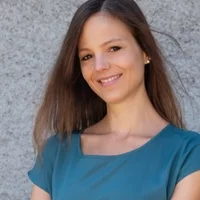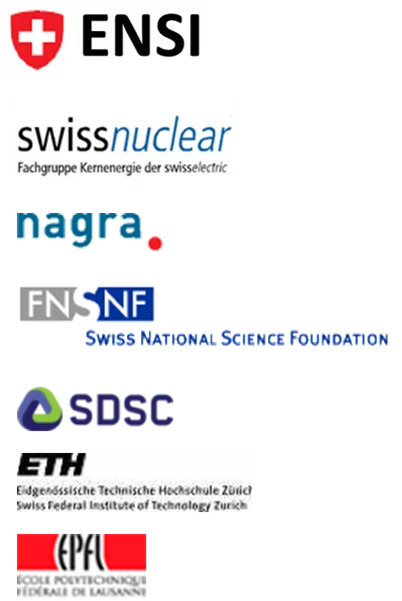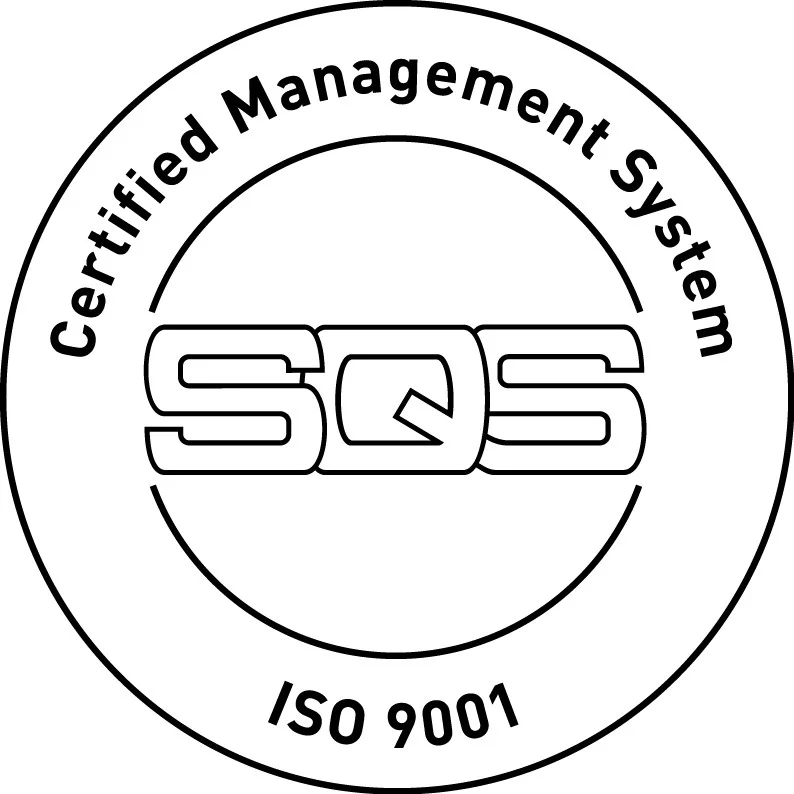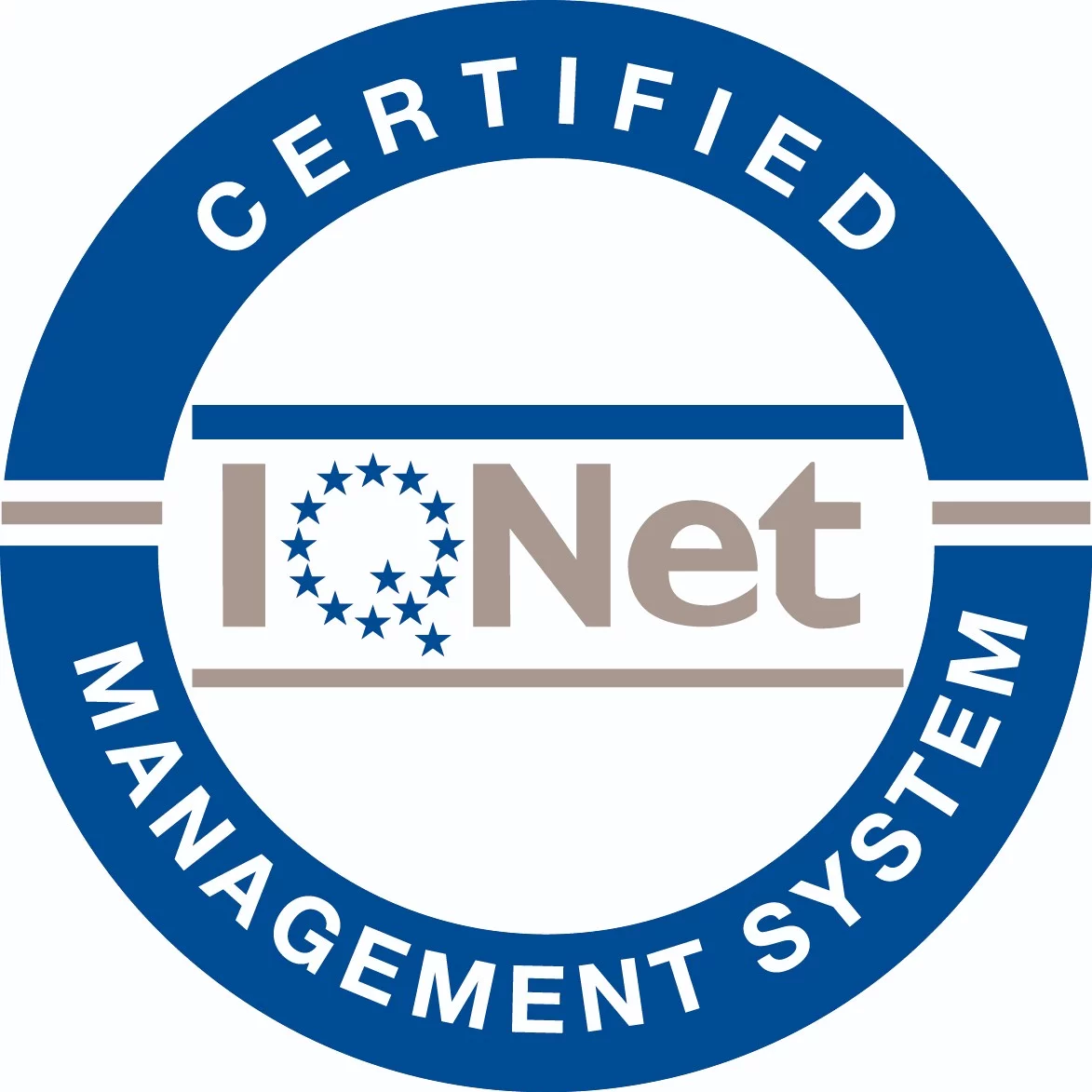National Partners
As leading national competence centre for nuclear safety analyses and experiments, the primary Swiss partners of the LRT for research, education and scientific support projects are ENSI (nuclear safety authority), swissnuclear (association of the nuclear power plants and utilities) and NAGRA (organisation for waste management).
For academic oriented research aimed at broader and/or cross-cutting topics, the LRT is engaged and aims at further strengthening its collaborations with national science agencies such as the Swiss National Science Foundation or the Swiss Data Science Center.
Regarding education, the LRT is attached to both the ETHZ and EPFL polytechnic institutes with tight links in particular to the laboratory for reactor physics and systems behaviour at the EPFL and the laboratory for nuclear energy systems at the ETHZ.
Finally internally at PSI, the LRT is engaged in collaborations with several of the other laboratories of the NES division, including
For academic oriented research aimed at broader and/or cross-cutting topics, the LRT is engaged and aims at further strengthening its collaborations with national science agencies such as the Swiss National Science Foundation or the Swiss Data Science Center.
Regarding education, the LRT is attached to both the ETHZ and EPFL polytechnic institutes with tight links in particular to the laboratory for reactor physics and systems behaviour at the EPFL and the laboratory for nuclear energy systems at the ETHZ.
Finally internally at PSI, the LRT is engaged in collaborations with several of the other laboratories of the NES division, including
- the laboratory for scientific computing on activities related to CFD-,multiscale fuel modelling and safety analyses/nuclear data for fast spectrum ( G-IV) reactor systems;
- the laboratory for nuclear materials and the Hotlab in relation to neutronics as well as thermo-mechanical aspects of high burnup fuel behaviour and advanced technology fuels
- the human reliability group of the laboratory for energy system analyses on the development of dynamical probabilistic safety assessment methodologies
- the laboratory for radiochemistry for research on nuclear data measurements and /or enhancements
- the laboratory for waste management for research on thermodynamic databases and chemistry relevant to severe accident phenomenology of LWRs as well as of advanced reactor systems (e.g. HTR)
International Partners
Nuclear safety is a global matter and it is therefore critical that the LRT activities are continuously associated to international projects and collaborations. The primary objective of such international collaborations is to contribute to the creation of new scientific knowledge, advancements of state-of-the-art for both computational methods and measurement techniques, benchmarking of the methods used in Switzerland versus latest international advances, development/updates of nuclear safety criteria, harmonization of safety standards and/or best-practices as well as know-how transfer including to/from emerging nuclear countries.
Within this international framework, the LRT collaboration partners includes nuclear organizations, from regulators for research and support on new build projects to utilities for operational issues and optimization. Also, the LRT has a long standing tradition of participation to research projects of the European Union, including current involvement in HORIZON2020 projects for both EURATOM and EUROFusion. Related to this, the LRT is moreover actively engaged in EU strategic research platforms, such as NUGENIA and JOPRAD. Furthermore, the lab is also strongly involved in partnerships with governmental as well as research organisations or universities on code development and validation activities, including among others, the US NRC. And on the education side, LRT pursues direct collaborations with several universities including for work on nuclear data, noise modelling and reactor simulations.
Another key component is the participation of LRT members to several scientific committees and expert groups of large international organizations including primarily the IAEA and the OECD/NEA. For the latter, the LRT is active in a wide range of working groups within the Committee on the Safety of Nuclear Installations and the Nuclear Science Committee.
Finally, as one of the primary Technical Safety Organization (TSO) units of the NES division, the LRT is also member of the ETSON network with lab members assigned as representatives to both the technical board on reactor safety as well as several technical working groups.
Within this international framework, the LRT collaboration partners includes nuclear organizations, from regulators for research and support on new build projects to utilities for operational issues and optimization. Also, the LRT has a long standing tradition of participation to research projects of the European Union, including current involvement in HORIZON2020 projects for both EURATOM and EUROFusion. Related to this, the LRT is moreover actively engaged in EU strategic research platforms, such as NUGENIA and JOPRAD. Furthermore, the lab is also strongly involved in partnerships with governmental as well as research organisations or universities on code development and validation activities, including among others, the US NRC. And on the education side, LRT pursues direct collaborations with several universities including for work on nuclear data, noise modelling and reactor simulations.
Another key component is the participation of LRT members to several scientific committees and expert groups of large international organizations including primarily the IAEA and the OECD/NEA. For the latter, the LRT is active in a wide range of working groups within the Committee on the Safety of Nuclear Installations and the Nuclear Science Committee.
Finally, as one of the primary Technical Safety Organization (TSO) units of the NES division, the LRT is also member of the ETSON network with lab members assigned as representatives to both the technical board on reactor safety as well as several technical working groups.
General Contact
Research Division
Nuclear Energy and Safety (NES)
Laboratory for Reactor Physics and Thermal-Hydraulics (LRT)
Paul Scherrer Institute
5232 Villigen PSI
Switzerland
Hakim Ferroukhi
Head of the Laboratory
Office: OHSA/C10
Telephone: +41 56 310 4062
E-mail: hakim.ferroukhi@psi.ch
Petra Kull
Administration and Assistance
Office: OHSA/C18
Telephone: + 41 56 310 2685
E-mail: petra.kull@psi.ch
Quality Management
NES Open positions
Current job openings in the Research Division for Nuclear Energy and Safety





